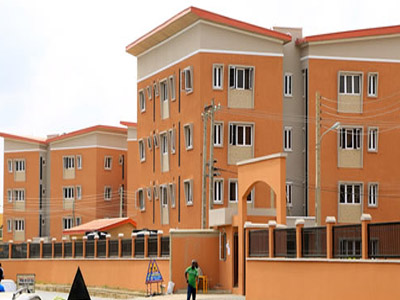Lagos to adopt vertical designs in new planning law
Since the land is not expanding but shrinking in size, coupled with the challenge to provide more functional homes for her citizens, the Lagos State Government may have to review her physical planning law
As a way to tackle the high rate of homelessness among Lagos residents, the State Government may have started considering the possibility of reviewing its physical planning law to legitimize more vertical designs in the state.
The vertical houses are becoming compelling on the state, as pressure mounts to create more functional homes for the residents. Vertical house is about a smart use of space that raises dense city living to new heights.
Lagos State Commissioner for Housing, Prince Gbolahan Lawal, said this last week during a chat with the media after presenting account of his stewardship in the Ministry of Housing, at Alausa, Lagos.
Lawal, who admitted that the shrinking land space in the state would make it difficult for the government to encourage self-built housing model, said the present administration said the way to solving the issue of housing in the state was for the state to go vertical.
“The self-built model is everywhere now and it is a challenge. Lagos is just 3, 750 square kilometres. Now we know we have to go vertical construction way in other to accommodate more houses and people. So in our estates, we encourage four floors and as physical infrastructural facilities improve, we can move up to six floors”, he said.
But to achieve this goal, the Commissioner said, the state’s planning regime has to be tilted to favour that vision.
“Our physical planning regime will change. When that time comes, the physical planning ministry will adjust the policy of government, where it says you cannot go above four floors in certain areas.
According to him, with the realities on ground, the state would not be able to keep to the traditional way of homes’ construction, saying the goal of the present admission was to evolve policies that are people-oriented and pocket-friendly.
He added that for the homes government plans to build, government has to subsidize in the area of infrastructure and land provision to make the prices of houses competitive.
The Commissioner called on mortgage operators to partner with the state. “We need primary and secondary mortgage banks to partner with us so that we can look and the mortgage and construction finance aspect of building”, he added.
Going by the calculations within the government circle, the Commissioner said by the end of 2016, a total of 2,663 housing units would be added to the housing stock under the present scheme. “We are in 32 sites presently, and by the end of this year 2, 663 housing units will be ready for off takers.”
Source: Guardian Newspaper.



Comments
Post a Comment